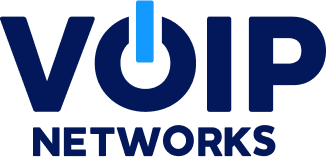 Among the various cybersecurity threats that people face today, phishing scams have been a danger to private information for decades. Phishing uses deception through emails or websites to give hackers a way to break into secure systems and steal personal data. Although the following information may seem like common knowledge to an IT professional, the increasing sophistication of phishing attacks make them an easy trap for unsuspecting clients.
Among the various cybersecurity threats that people face today, phishing scams have been a danger to private information for decades. Phishing uses deception through emails or websites to give hackers a way to break into secure systems and steal personal data. Although the following information may seem like common knowledge to an IT professional, the increasing sophistication of phishing attacks make them an easy trap for unsuspecting clients.
Cybercriminals are constantly using inventive ways in their approach to stealing information. Today, deceptive emails and websites can seemingly replicate the official versions from trusted organizations. The incentive is to mislead a recipient into believing that the message is relevant to them and encourage them to download an attachment or click a link. For this reason, it is important to support and educate your customers on the deceitful tactics of phishing and how to maintain their data security. The most effective way to do so is by giving clients useful, easy-to-follow tips that they can keep with them to avoid phishing scams.
How to Avoid Phishing Scams
It is important to never assume what your client does or does not know. Unfortunately, even the most tech-savvy individuals can fall victim to a security breach from an advanced phishing scam. That being said, these simple, yet essential tips can be offered to your clients as part of a cybersecurity toolkit to help them protect their business.
Be wary of suspicious emails and common tactics.
A tactic that immediately denotes phishing is the fact that a legitimate institution or business would not unexpectedly request personal data via email. The best practice is to ignore emails that demand account or password information unless they are expecting a message from the particular organization. If there is a link or download attachment, they must make sure it is familiar before clicking on it.
While sophisticated phishing scams will be cautious not to use bold titles and excessive exclamation marks that clearly indicate spam, phrasing and spelling are also aspects to consider. If it seems off in any way, avoid it. Always review the spelling in messages and in any attached URLs. Additionally, encourage your clients to pay attention to where an email link leads by hovering over it with their cursor. If the link is in a “Click Here” button, this will give them a preview of the site to which they will be directed.
Another element to be aware of is timing. For example, during tax season a person may be more likely to receive an out of place message from “their bank” to gain account information and steal money.
Refrain from sharing personal information altogether.
It may seem obvious to avoid sharing personal information, but in a situation where the email or website seems trustworthy, the truth can evade an unsuspicious person. While you are an experienced IT professional, your client may not have the same comprehensive understanding of cybersecurity. Therefore, it is your duty to ensure that your clients know the security damage phishing can cause and the necessity of these warnings. Ultimately, a customer should never give away private information if there is even the slightest suspicion that something is not right. Another helpful practice is to refrain from sharing information on public social media profiles such as birthdays, phone numbers, home addresses, or any upcoming travel plans.
Have an IT support system in place.
While there are steps clients can take to strengthen the security of sensitive data, nothing compares to the true peace of mind that dedicated, round-the-clock IT support provides. Because businesses of all sizes often do not have the appropriate resources to hire in-house cybersecurity experts, services like Cloud9Care offer a proactive and reliable solution. The advanced technology, experienced professionals, and preventative maintenance will minimize any risk of cyber attack even further. The combination of an informed client and skilled IT support is the most powerful way to avoid phishing scams and other cyber attacks.





